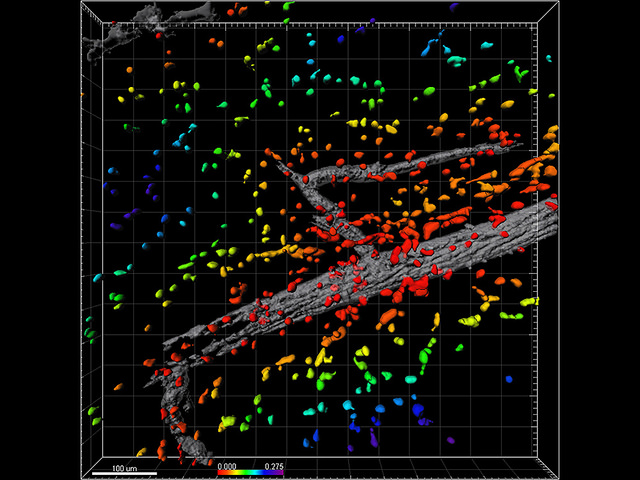Novartis has agreed to acquire a subsidiary of IFM Therapeutics for up to $1.575 billion, IFM said today, in a deal that will expand the pharma giant’s pipeline with one clinical and two pre-clinical programs designed to treat chronic inflammation by inhibiting targets in the innate immune system.
IFM Tre, a subsidiary of Boston-based IFM Therapeutics, specializes in developing small-molecule antagonists targeting abnormal or chronic inflammatory responses of the innate immune system through the NOD-, LRR- and pyrin domain-containing 3 (NLRP3) pathway, which is believed to underlie a variety of serious diseases.
NLRP3 is an intracellular innate immune signaling receptor that allows immune cells to detect the presence of pro-inflammatory foreign or endogenous molecules that signal infection, tissue damage or metabolic derangements—conditions that lead to the assembly of an inflammasome, which initiates an immune response.
IFM Tre says its programs are designed to target the innate immune system by suppressing only the inflammation mediated by the NLRP3 pathway, leaving other immune pathways unsuppressed and free to produce inflammatory responses to confront harmful pathogens.
IFM Tre’s lead candidate is IFM-2427, a first-in-class, clinical stage systemic antagonist designed to treat multiple chronic inflammatory disorders that including atherosclerosis and nonalcoholic steatohepatitis (NASH).
Also in IFM Tre’s pipeline are a pre-clinical stage gut-directed molecule for the treatment of inflammatory bowel disease; and a pre-clinical stage central nervous system (CNS)-penetrant molecule.
“IFM Tre’s compounds have demonstrated that they can fine-tune the immune system, offering a potentially potent approach for treating a large variety of diseases associated with inflammation,” said Jay Bradner, President of the Novartis Institutes for BioMedical Research. “We look forward to applying our deep expertise in this field to advancing these medicines through the clinic and to patients who need them.”
Launched with $31M
IFM Tre was launched in July 2018 with $31 million in Series A financing. Participants in the financing included management of parent company IFM, Atlas Venture, Abingworth—and Bristol-Myers Squibb (BMS), which in 2017 shelled out $300 million upfront, and agreed to pay up to $1.01 billion in milestones, to acquire the original IFM Therapeutics Inc., established just two years earlier. That deal gave BMS full rights to that IFM’s preclinical stimulator of interferon genes (STING) and NLRP3 agonist programs focused on enhancing the innate immune response for treating cancer.
Following BMS’ acquisition, members of the original IFM’s management launched the current IFM Therapeutics LLC. That company retained the original IFM’s personnel and facilities, as well as its remaining research programs, which included an NLRP3 antagonist program focused on curbing immune responses that lead to inflammatory diseases and fibrosis.
“Since founding IFM in 2015, our team has worked tirelessly to build a portfolio of next-generation small molecule medicines that exploit the innate immune system as a new therapeutic target. Today’s announcement marks a significant milestone in the development of next-generation therapies for serious inflammatory conditions,” stated Gary D. Glick, PhD, CEO and Co-Founder of IFM Therapeutics.
Novartis agreed to pay IFM $310 million upfront and up to $1.265 billion in payments tied to achieving milestones for IFM Tre. The acquisition has been approved by IFM Tre’s parent company and stockholders, and is expected to close during the second quarter subject to customary closing conditions that include clearance under the Hart-Scott-Rodino Antitrust Improvements Act.
“With Novartis we have identified a partner that shares our conviction in the potential of this approach, and who has deep expertise bringing inflammatory and autoimmune disease therapeutics to market,” Glick added. “We look forward to collaborating with Novartis, while continuing to develop programs that target other components of the innate immune system through IFM Due and the broader IFM enterprise.”



